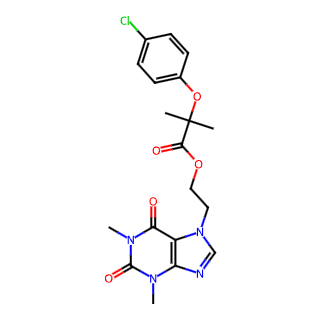- Synthetic anti-infective drugs
- Medications for the digestive system
- Antipyretic and analgesic drugs
- Medications for the blood system
- Medications for the respiratory system
- Anti-allergic drugs
- Medications for the urinary system
- Diagnostic medications
- Immunosuppressive and immunomodulatory drugs
- Vitamins and mineral supplements
- Antioxidants and medications for osteoporosis
- Antiparasitic drugs
- Ophthalmic medications
- Amino acids and their derivatives
- Dermatological medications
- Medications for the circulatory system
- Antitumor drugs
- Medications for the nervous system
- Hormonal and endocrine function-regulating drugs
- Antibiotics
- Others
CAS NO.: 9003-97-8




Calcium Polycarbophil
Calcium Polycarbophil, also known as polycarbophil calcium, is a bulk-forming laxative, also referred to as a stool bulking agent. It is clinically used to treat various types of constipation, such as constipation associated with irritable bowel syndrome (IBS), functional constipation, constipation in patients with benign anal diseases, and postoperative constipation.
Basic Information
English Name: Calcium Polycarbophil
Main Ingredient: Polycarbophil Calcium
Drug Type: Laxative for constipation
Storage: Keep tightly closed
Indications and Dosage
Indications: Treatment of various types of constipation, including constipation associated with IBS, functional constipation, constipation in patients with benign anal diseases, and postoperative constipation.
Precautions and Contraindications
Precautions:
This medication is symptomatic treatment only. If symptoms do not improve, discontinue use (typically limited to 2 weeks).
The safety and efficacy of long-term use have not been established.
Caution should be exercised in specific patients such as those taking activated vitamin D, using digitalis, prone to hypercalcemia, with a history of hypochlorhydria or gastric resection.
Safety in pregnant and lactating women, children, and the elderly has not been confirmed; use with caution under medical guidance.
Contraindications:
Patients with acute abdominal diseases (e.g., appendicitis, intestinal bleeding, ulcerative colitis).
Patients with a risk of postoperative intestinal obstruction.
Patients with hypercalcemia.
Patients with kidney stones.
Patients with renal insufficiency (except mild renal insufficiency and patients undergoing dialysis).
Patients with a history of allergy to the active ingredient.
Adverse Reactions
Common (1% to 10%, including 1%) and occasionally occurring (0.1% to 1%, including 0.1%) adverse reactions of this medication may include:
Gastrointestinal reactions: such as belching, vomiting, thirst, abdominal distension, diarrhea, constipation, abdominal pain, borborygmus, etc.
Allergic reactions: such as rash, pruritus, etc.
Hematological abnormalities: such as leukopenia.
Abnormalities in liver and kidney function: such as elevated serum alanine aminotransferase (ALT), aspartate aminotransferase (AST), occult blood in urine, positive urine protein.
Other adverse reactions: such as edema, headache, etc.
Drug Interactions
Activated vitamin D preparations (e.g., alfacalcidol, calcitriol) promote intestinal calcium absorption and may cause hypercalcemia when used concurrently with this medication.
Calcium preparations (e.g., L-aspartate calcium, calcium lactate) may lead to excessive calcium intake and reduce the efficacy of this medication when used together.
This medication may enhance the effects of digitalis drugs, leading to cardiac arrhythmias.
This medication can form chelates with tetracycline antibiotics and quinolone antibiotics, affecting their absorption and reducing their efficacy.
Proton pump inhibitors, H2 receptor antagonists, and antacids can increase gastric pH, inhibiting the decalcification of this medication and reducing its efficacy.

Tai Yau Street, San Po Kong, Kowloon, Hong Kong, China.



